This episode explores taking risks and the benefits you may gain as a result. Taking a risk requires a great deal of courage. This week’s guest, Priya Kara certainly demonstrates this positively.
Priya is no stranger to taking risks.
Throughout her educational career and venture into entrepreneurship, Priya has danced with risk-taking and enjoyed the many opportunities that have unfolded.
VIEW TRANSCRIPTI just knew that I wanted to offer something of value…what I can offer and give back to others…grew over time.

Priya Kara
Educational Consultant and Founder of PHK Education
Priya is a former Secondary School Teacher and Middle Leader turned freelance education consultant and entrepreneur.
As a former secondary school teacher and Specialist Leader in Education (SLE) for over 13 years, Priya uses her expertise, throughout her former professional capacity, to train trainee teachers. She has also delivered professional development for overseas teachers.
Alongside Priya’s freelance consultant role as a teacher trainer and advisory role for careers changers into education, Priya has worked in parallel for a charity in India using her knowledge to teach and create education resources. This led her to embark on completing a Masters in Education, Gender and International Development. She now uses her global education expertise leading a Future Girls Campaign as a research consultant for an NGO.
At present, Priya is Founder of PHK Education, a skills based education hub. Priya has recently launched the first arm of her business as a study skills coach, supporting students to achieve their ambitious academic goals focusing on goal setting, revision skills, memory, motivation as well as supporting parents with practical advice and guidance.
Highlights:
- 14:50 – Making plans
- 17:39 – Biggest Risk
- 24:06 – Pandemic to coaching
- 36:52 – Leadership as a business woman
Resource Tip:
- Use LinkedIn to connect with others within education.
Have you left a review for Voicing Education – The Podcast?
Each and every review really does make a difference. If you are enjoying the episodes, I’d just like to ask for you to share your appreciation.
Please leave a review:
- Head to voicingeducation-thepodcast/apple or search Voicing Education – The Podcast in Apple Podcasts. (This is easier to do on your phone.)
- Scroll down and click the 5-star rating.
- To show extra appreciation and support – please add a quick sentence (or two) to share what you enjoy about the show.

